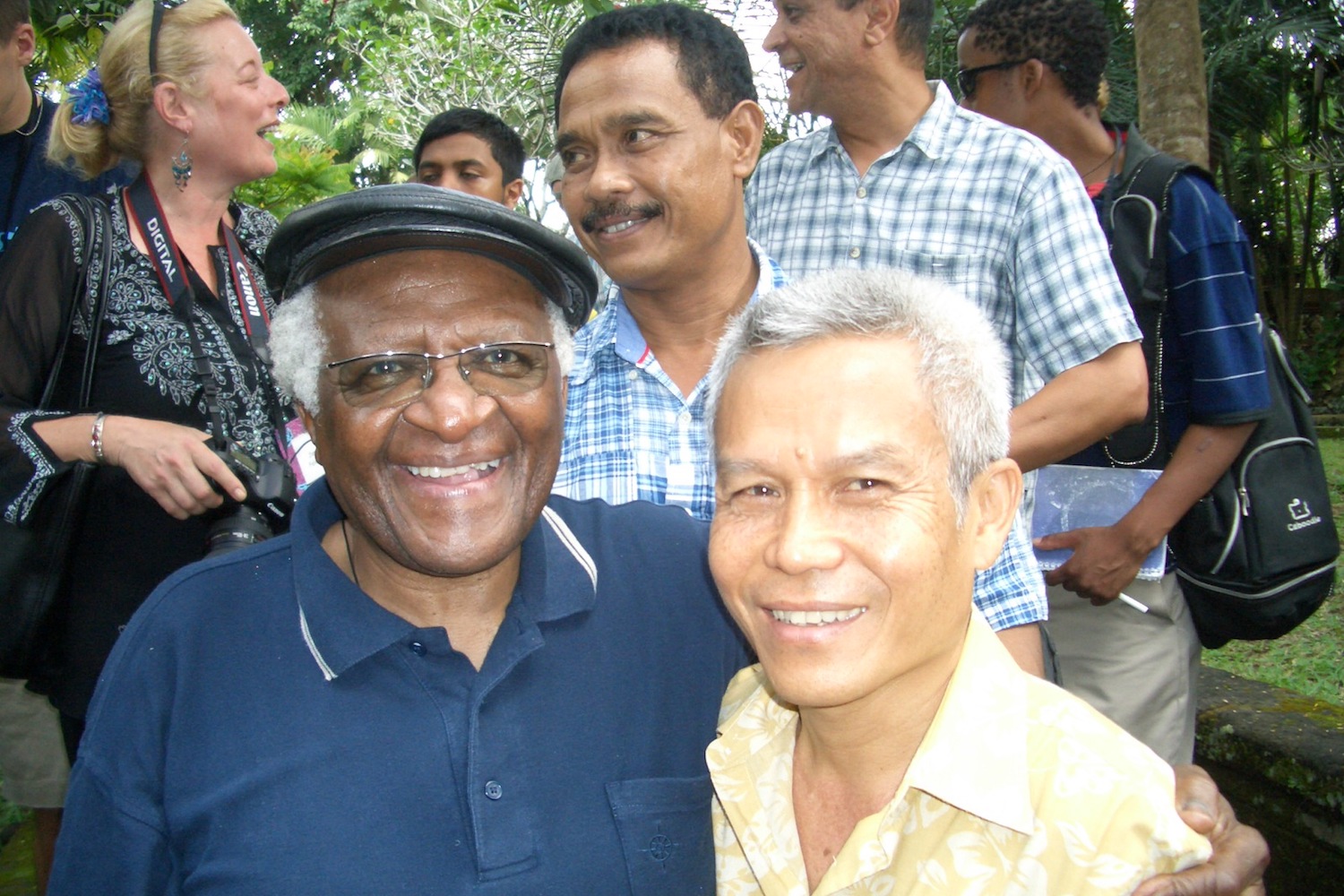International Federation for Human Rights and Lao Movement for Human Rights: 23 February 2015
Joint press release
 The Lao government must turn words into action and step up the investigation into the enforced disappearance of prominent civil society leader Sombath Somphone and publicly disclose the findings, FIDH and it member organization, the Lao Movement for Human Rights (LMHR), said today. The two organizations made the call to mark 800 days since Sombath’s disappearance on the evening of 15 December 2012 in Vientiane.
The Lao government must turn words into action and step up the investigation into the enforced disappearance of prominent civil society leader Sombath Somphone and publicly disclose the findings, FIDH and it member organization, the Lao Movement for Human Rights (LMHR), said today. The two organizations made the call to mark 800 days since Sombath’s disappearance on the evening of 15 December 2012 in Vientiane.
 At the second Universal Periodic Review (UPR) of Laos, held in Geneva on 20 January 2015, Lao government representative Phongsavath Boupha said that authorities were “still thoroughly conducting” an investigation into Sombath’s disappearance. Phongsavath also declared that the investigation committee was “ready to receive suggestions from any interested parties with regard to the ongoing investigation.” Despite the Lao government’s claim of an ongoing investigation, Vientiane has failed to provide any update on the probe since 7 June 2013.
At the second Universal Periodic Review (UPR) of Laos, held in Geneva on 20 January 2015, Lao government representative Phongsavath Boupha said that authorities were “still thoroughly conducting” an investigation into Sombath’s disappearance. Phongsavath also declared that the investigation committee was “ready to receive suggestions from any interested parties with regard to the ongoing investigation.” Despite the Lao government’s claim of an ongoing investigation, Vientiane has failed to provide any update on the probe since 7 June 2013.
“For too long, Vientiane has dragged its feet on Sombath’s disappearance. It’s time for the Lao government to fulfill its international obligations and implement the UPR recommendations concerning enforced disappearances,” said FIDH President Karim Lahidji. “The government must also keep its word and accept international technical assistance in the investigation.”
At the January UPR of Laos, 10 states (Australia, Canada, Finland, Germany, Luxembourg, Poland, Portugal, Sweden, Switzerland, and the UK) made recommendations for an investigation into Sombath’s disappearance. In addition, five states (Belgium, the Netherlands, Singapore, Slovenia, and the US) raised questions about the issue.
FIDH and LMHR also urge the Lao government to accelerate the process of ratification of the International Convention for the Protection of All Persons from Enforced Disappearance (ICCPED). Laos signed the ICCPED in September 2008. However, the Lao government has not ratified the convention despite having accepted recommendations made by several states during its first UPR in 2010 to become a party to the treaty. At the January UPR, 10 states (Argentina, Brazil, Canada France, Germany, Italy, the Netherlands, Paraguay, Spain, and Uruguay) recommended the Lao government ratify the ICCPED.
“Considering the government’s poor record in implementing previous UPR recommendations, Vientiane will continue to use this process as a smokescreen with regard to enforced disappearances unless there is sustained international pressure,” said LMHR President Vanida Thephsouvanh.
FIDH and LMHR reiterate their call for the Lao government to conduct thorough, competent, and independent investigations aimed at determining the fate or whereabouts of all other victims of enforced disappearances in the country.
To this day, the fate or whereabouts of at least 13 people remain unknown. They include: three student leaders who were arrested on 26 October 1999 for organizing a peaceful pro-democracy protest in Vientiane; nine people (two women and seven men), who were detained by security forces in November 2009 in various locations across the country for planning peaceful pro-democracy demonstrations; and Somphone Khantisouk, an outspoken critic of Chinese-sponsored agricultural projects in Luang Namtha Province, who disappeared in January 2007 after uniformed men abducted him.
The Lao government’s ongoing failure to undertake adequate investigations into all these cases of enforced disappearances violates its obligations under Article 2(3) of the International Covenant on Civil and Political Rights (ICCPR), to which Laos is a state party. The ICCPR states that governments must provide an “effective remedy” for violations of rights guaranteed by the Covenant, including the right to liberty and security of person.
Press contacts
Andrea Giorgetta (English) – Tel: +66 88 611 7722 (Bangkok)
Arthur Manet (French, English, Spanish) – Tel: +33 6 72 28 42 94 (Paris)
